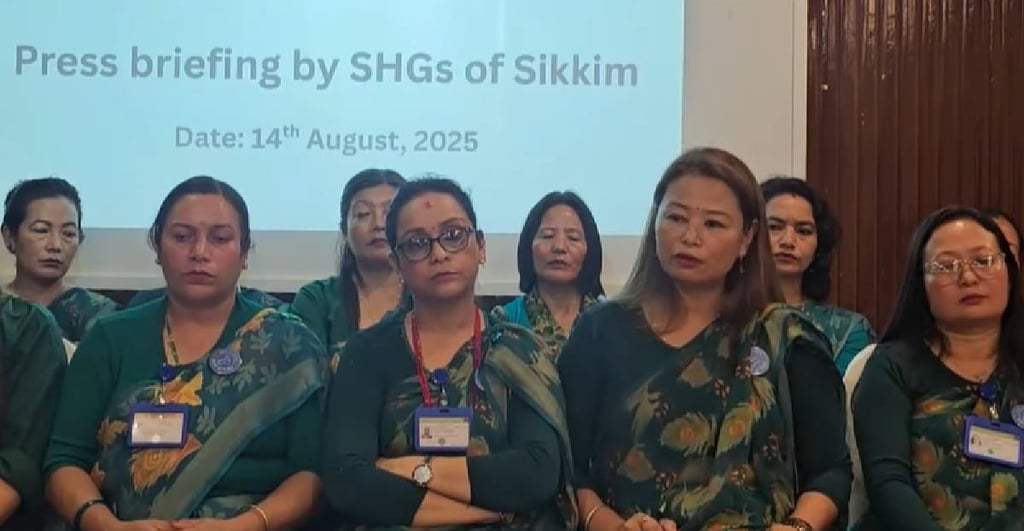Sikkim adopts comprehensive approach to mental health and suicide prevention, SHG Chief says
The SHG chief also underlined the government’s efforts to increase female participation in governance and decision-making.
LOCAL


Chumila Bhutia, President of Self Help Groups (SHGs) and Chairperson of the Public Health Engineering Department (PHE), addressed the media today regarding Sikkim’s ongoing efforts in mental health and suicide prevention. She emphasized that these issues should not be politicized and warned against any personal attacks.
“Even if the opposition tries to make noise, we want to caution and inform them not to make personal attacks against you. Any personal issues should not be targeted,” Bhutia said. She explained that mental health and suicide are sensitive matters that require structured and professional handling. “Some of the data has been misinterpreted. This system is being implemented to handle suicide cases in a structured way, which is important not just for our country but globally, as suicide and non-communicable diseases are major concerns,” she added.
Bhutia highlighted that Sikkim requires a separate policy due to its unique demographic structure. Guidance and leadership specific to the state are necessary, she said, noting that the Chief Minister ensures all inputs, whether telephonic or in-person, are carefully considered before decisions are made. The location for the project site is being finalized, and the print version is being prepared. Confidential and emotional support has been provided, and people can reach out to Telemanas at 14416 for telephonic counseling from mental health experts.
The SHG chief also underlined the government’s efforts to increase female participation in governance and decision-making. “The data shows an increase in female participation across Sikkim, from 55,000 to 63,000 members in relevant groups. Women are actively contributing to development and governance at both local and state levels,” she said.
Bhutia stressed that the government has prioritized sensitive issues such as women’s and children’s safety, mental health, and suicide prevention. A bottom-up approach is being followed, involving students, community groups, spiritual and religious leaders, and local representatives.
Sikkim’s separate policy is designed to complement national mental health strategies while addressing local needs. The approach involves government and non-government stakeholders, working committees, district collectors, LGBTQ communities, media personnel, and public representatives. International experts, including those from the World Bank, have appreciated the strategy. Bhutia said it is intended to be comprehensive, inclusive, and tailored for Sikkim’s population, ensuring effectiveness at the grassroots level while remaining adaptable for national and global concerns.
